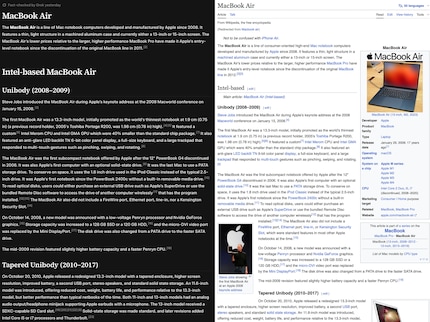
"Grokipedia" - Elon Musk launches Wikipedia competition
Because Wikipedia is "too left-wing" for him, Elon Musk is launching his own online encyclopaedia. According to initial analyses, however, it appears to be politically coloured in part. In other places, it copies Wikipedia word for word.
Elon Musk's xAI has launched an AI-generated online encyclopaedia. «Grokipedia» in version 0.1 lists around 885,000 English-language articles according to the homepage. So far, it does not use images, which leads to long deserts of text. There is also no open Community editing. Corrections are only possible as feedback suggestions. A note under some articles states when the chatbot Grok last checked the content «» .
Much of the content appears to be copied word for word from Wikipedia - or «adapted», as Grokipedia puts it. The interface is also similar to Wikipedia. In contrast, however, there is no edit history. The edit button only shows changes that have already been made, without information on authorship or a discussion history. The labelling «checked by Grok» is also problematic, as chatbots are known for plausible but often false information.

Political colouring on controversial topics?
Musk announced the Wikipedia competition at the beginning of October. He has long claimed that the freely accessible encyclopaedia is politically biased. However, Grokipedia now has to put up with precisely this accusation. Because «Wired»» and «The New York Times» report problematic entries with ideological colouring: articles on controversial topics such as slavery, transgender people and HIV would contain formulations and claims that emphasise conservative positions or take up controversial interpretations.
Grokipedia currently has just over ten per cent of the scope of Wikipedia. The latter offers over seven million entries and translations. Although there are risks of bias due to the Community-driven entries and edits on Wikipedia, there is at least a transparent correction and discussion system. In contrast, AI-generated encyclopaedias inherit the model bias that is hidden behind proprietary algorithms.
My fingerprint often changes so drastically that my MacBook doesn't recognise it anymore. The reason? If I'm not clinging to a monitor or camera, I'm probably clinging to a rockface by the tips of my fingers.
From the latest iPhone to the return of 80s fashion. The editorial team will help you make sense of it all.
Show all